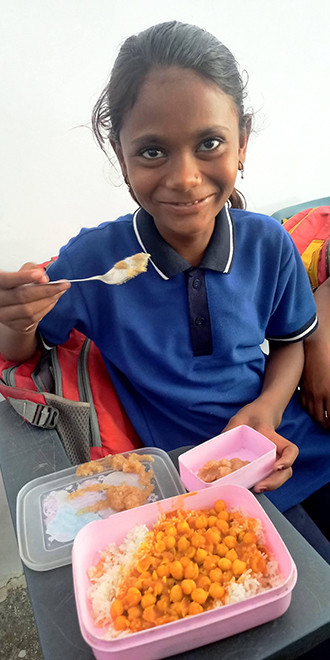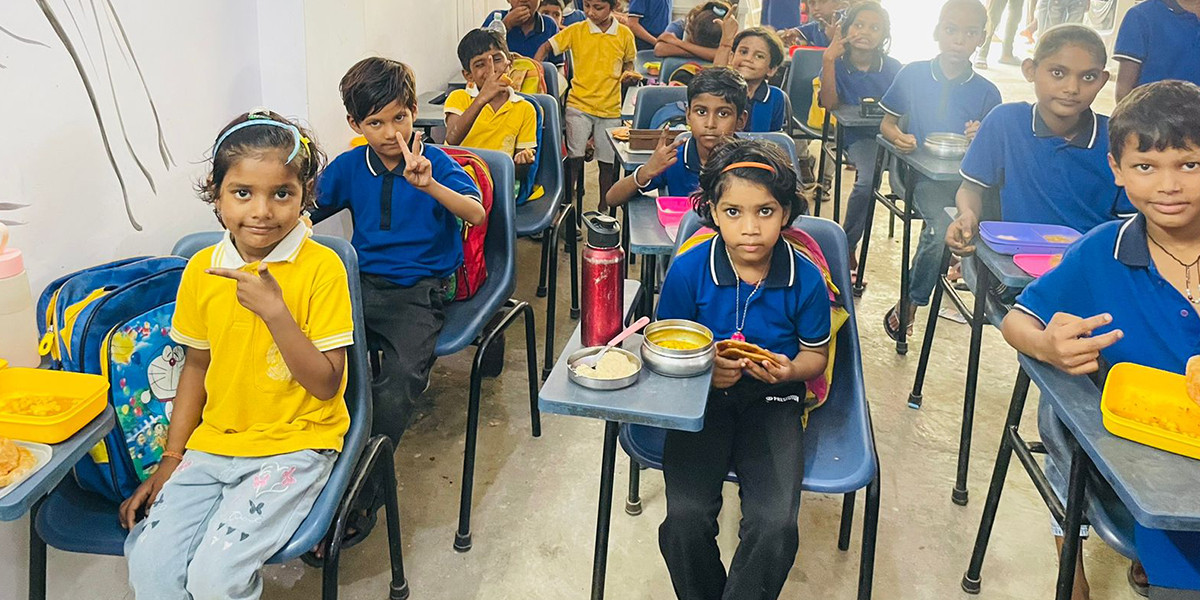Early childhood is a period of rapid physical, cognitive, and emotional development, where the foundations for lifelong health and well-being are established. During these formative years, nutrition plays a pivotal role in ensuring that children grow and develop to their full potential. Adequate nourishment provides the building blocks for strong immune systems, proper brain function, and healthy bodies. However, for millions of children across India, particularly those living in underserved communities, access to nutritious food remains an unattainable dream.
Malnutrition during early childhood can have devastating consequences. It not only stunts physical growth but also hampers cognitive abilities, leaving children unable to perform well in school and, eventually, in life. The effects of inadequate nutrition are far beyond the individual, creating a cycle of poverty, poor health, and diminished opportunities that impacts families, communities, and the nation as a whole.
In Gurgaon, a city synonymous with rapid urbanization and economic growth, the stark contrasts between affluence and poverty are particularly visible. While high-rise buildings and luxury living symbolize progress, there are pockets of the city where children struggle to get even one nutritious meal a day. In these areas, families often face economic hardships, and children’s nutritional needs take a backseat to other pressing concerns.
Amid this challenging surrounding, We Care Foundation, a Gurgaon-based NGO, is committed to tackling childhood malnutrition, the organization works towards ensuring that every child, regardless of their socio-economic status, has access to the nourishment they need to thrive. Through innovative initiatives such as providing nutritious breakfasts and mid-day meals, We Care Foundation is addressing hunger and malnutrition while fostering better health, education, and futures for many children.
The organization’s approach goes beyond simply feeding children. It focuses on creating a lasting impact by addressing the root causes of malnutrition and engaging communities to prioritize children’s well-being. By combining compassion with strategic action, We Care Foundation is demonstrating how dedicated efforts can transform lives, one meal at a time.
Why Nutrition in Early Childhood Matters
Good nutrition during early childhood serves as the cornerstone for a child’s holistic development, fuelling their body and mind while laying the groundwork for a healthier and more productive future. Beyond its biological necessity, nutrition during this stage shapes societal outcomes, influencing everything from education to economic productivity and public health. Malnutrition, in contrast, undermines this potential, leading to profound and far-reaching consequences that extend beyond the individual to affect families, communities, and nations.
 The Individual Impact of Malnutrition
The Individual Impact of Malnutrition
- Stunted Growth: Chronic malnutrition during critical growth periods hinders physical development, leading to stunting. This condition not only affects height but also reduces organ functionality, setting a lifelong trajectory of health challenges.
- Cognitive Impairment: The brain requires consistent nourishment for optimal development. Poor nutrition during early childhood hampers memory, problem-solving, and learning abilities, often leading to lower academic performance.
- Weakened Immunity: A lack of essential nutrients compromises immune systems, leaving children more susceptible to infections and illnesses, which can create a cycle of poor health and missed educational opportunities.
- Long-Term Consequences: Malnourished children often grow into adults at greater risk of chronic diseases, reduced earning potential, and social marginalization, perpetuating cycles of poverty and inequality.
A Sociological Perspective on Nutrition
From a sociological lens, early childhood nutrition is not just a personal or familial concern but a societal one, deeply tied to issues of inequality, policy, and social structure. Sociological theories help us understand how nutrition reflects and reinforces broader systemic inequities:
- Social Determinants of Health: Access to adequate nutrition is shaped by socio-economic status, education, employment, and living conditions. Children in marginalized communities often lack access to affordable, nutritious food due to systemic poverty and inadequate public health infrastructure.
- Intersectionality: The impact of malnutrition is often compounded by other axes of inequality, including gender, caste, and geography. For example, girls in many communities are more likely to face food insecurity than boys due to patriarchal norms.
- Food Systems and Public Policy: Malnutrition also highlights failures in food distribution systems and public policy. While some regions may experience food surpluses, others grapple with scarcity due to inefficiencies in supply chains, lack of political will, or inadequate funding for nutrition programs.
Nutrition as an Investment in Society’s Future
Good nutrition in early childhood isn’t just about preventing hunger—it’s about giving children the chance to grow into healthy, capable adults. When kids eat well, they do better in school, have more job opportunities, and can make positive contributions to their communities. On the other hand, poor nutrition leads to health problems, keeps families stuck in poverty, and creates barriers to success, making it an important issue to address.
We at, We Care Foundation are playing a role towards solving this problem. By providing nutritious meals to children, we are not just feeding them but also helping improve their health, education, and future opportunities.
We Care Foundation: Transforming Lives One Meal at a Time
Recognizing the important impact of nutrition on young lives, We Care Foundation has taken a proactive approach to tackle this pressing issue. Based in Gurgaon, the organization focuses on providing nutritious meals to children from low-income families, enabling them to grow, learn, and dream without the burden of hunger.
Programs That Make a Difference
- Nutritious Breakfast: To kick start the day, We Care Foundation provides wholesome breakfasts packed with essential nutrients. These meals often include milk, fruits, and cereals to ensure a balanced diet.
- Mid-Day Meals: For children attending school, the NGO delivers mid-day meals designed to meet their daily caloric and nutritional requirements. These meals not only combat hunger but also encourage school attendance, creating a ripple effect on education and empowerment.
Community Engagement and Awareness
We Care Foundation goes beyond meal distribution by engaging with local communities to raise awareness about the importance of nutrition. Through workshops and campaigns, the NGO educates parents about healthy eating habits and the long-term benefits of proper nourishment.
How You Can Support We Care Foundation
Addressing childhood malnutrition is a collective responsibility, and there are many ways you can contribute to We Care Foundation’s mission:
• Donate: Your contributions can help fund meals and expand the organization’s reach.
• Volunteer: Lend your time and skills to support meal distribution or community outreach programs.
• Spread the Word: Raise awareness about the importance of nutrition and We Care Foundation’s work through social media or word-of-mouth.

